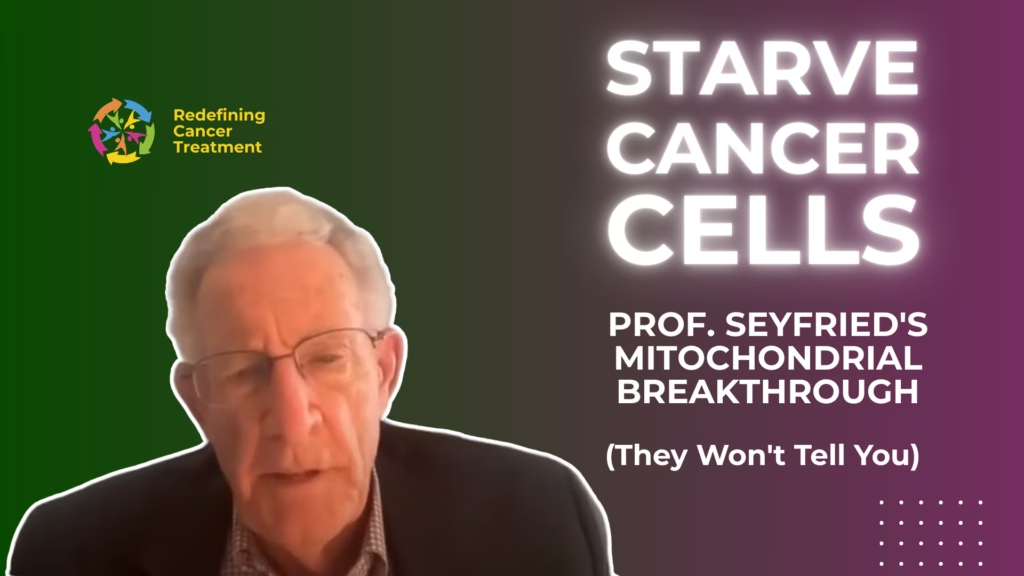
Thomas Seyfried Warns Against Unauthorised Use of His Work in Cancer-Keto Promotions
Dr. Thomas Seyfried Issues Warning: “Stick to My Published Work”⚠️ The cancer researcher clarifies he has no ties to “keto for cancer”
Cancer remains one of the most formidable health challenges of our time, with millions of new cases diagnosed annually worldwide. Despite significant advances in medical technology and research, the mortality rates associated with cancer have seen little improvement. Professor Thomas Seyfried, a renowned expert in biology and biochemistry, offers a compelling alternative perspective on this disease. He argues that cancer is fundamentally a metabolic disorder rather than a genetic one, and that addressing its metabolic roots could revolutionize both prevention and treatment strategies. In this post, we delve into Professor Seyfried’s groundbreaking work and explore the potential of metabolic therapy in managing cancer.
Professor Thomas Seyfried
Professor Thomas Seyfried, a renowned expert in biology, genetics, and biochemistry, has dedicated his career to understanding cancer from a metabolic perspective. His work challenges the conventional genetic view of cancer, instead focusing on the role of mitochondrial dysfunction and metabolic disorders.
Cancer is a growing global health issue, with nearly two million new cases diagnosed annually in the United States alone, resulting in approximately 1,700 deaths per day. Despite significant funding for cancer research, there has been little progress in reducing mortality rates. Seyfried attributes this to a misdirected focus on genetic mutations rather than metabolic issues.
The metabolic theory, inspired by Otto Warburg’s work in the 1920s, posits that cancer cells rely on fermentation for energy production due to mitochondrial dysfunction. This leads to an increased dependency on glucose and glutamine, which are essential for cancer cell growth. Seyfried argues that addressing these metabolic pathways can offer a more effective approach to cancer management.
Modern lifestyles, characterised by high carbohydrate intake, lack of exercise, and stress, contribute to mitochondrial inefficiency and increase cancer risk. Seyfried notes that traditional societies with low-carb diets and active lifestyles have historically had lower cancer rates. For example, African tribes living traditionally had rare instances of cancer, but this changed with the introduction of modern diets.
Metabolic therapy involves restricting glucose and glutamine while promoting ketosis, a state where the body burns ketones for energy. This approach can selectively target cancer cells, which are unable to use ketones efficiently. Seyfried highlights cases where patients have outlived their predicted survival times using metabolic therapy, such as Pablo Kelly, who lived for ten years with glioblastoma without conventional treatments.
Despite the promising results of metabolic therapy, it faces resistance from the medical establishment due to its departure from conventional genetic-based treatments. Seyfried emphasises the need for a paradigm shift in understanding cancer, focusing on metabolic rather than genetic causes. He believes that with continued research and awareness, metabolic therapy could become a mainstream approach to cancer management.
Professor Seyfried’s work offers a compelling alternative perspective on cancer, emphasising the role of metabolism over genetics. By understanding and addressing the metabolic underpinnings of cancer, there is potential for significant advancements in prevention and treatment. As Seyfried notes, this approach not only challenges current practices but also offers hope for improving outcomes and reducing the fear associated with cancer.

Dr. Thomas Seyfried Issues Warning: “Stick to My Published Work”⚠️ The cancer researcher clarifies he has no ties to “keto for cancer”

Professor Thomas Seyfried’s groundbreaking metabolic therapy framework reveals how targeting cancer’s energy vulnerabilities—through ketogenic diets and repurposed drugs like Fenbendazole—offers

In this paradigm-shifting analysis of cancer biology, Professor Thomas Seyfried (Boston College) talks about starving cancer cells and dismantles the

The video explores how metabolic therapy can revolutionise cancer treatment by targeting cancer cells’ reliance on glucose and glutamine for energy. It